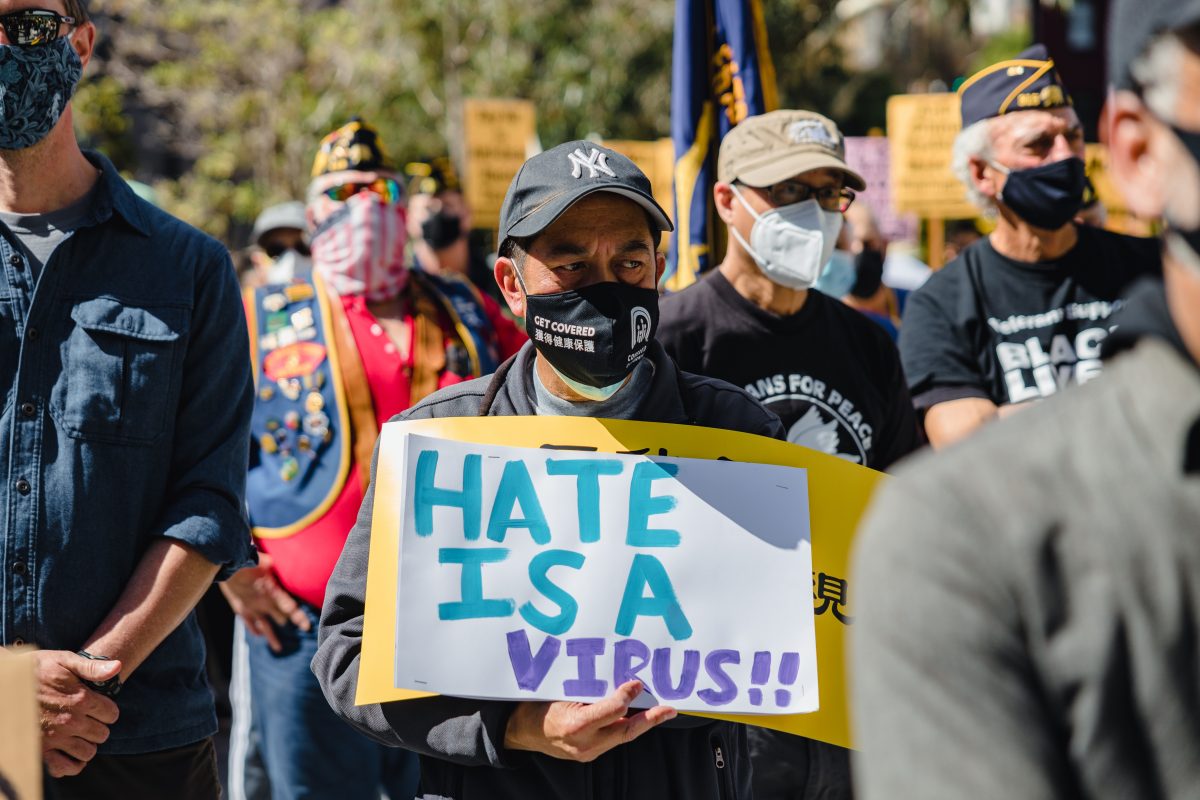Tennessee hate crimes rose in 2021 — the most recent year recorded — for the second year in a row, according to new state and federal data.
Each year the Federal Bureau of Investigation (FBI) and the Tennessee Bureau of Investigation (TBI) issue reports on hate crime. Law enforcement agencies must report crime data, and in years past, they could report to either the FBI or the TBI. Last year was the first year the FBI mandated all agencies report to them. However, the transition is not yet complete as some agencies are unable or unwilling to comply with the FBI mandate.
The U.S. Department of Justice said because of this “data cannot reliably be compared across years.” It also makes it tough to complete a picture of hate-crime activity in Tennessee.
However, state data show 133 hate crimes recorded in 2021, higher than the 122 recorded in 2020, and the 112 hate crimes recorded in 2019. The information in both reports also illuminates the flash points of friction in the state.
For example, most hate crimes in Tennessee in 2021 were based on race and ethnicity (62). Most of these (46) were against Black people. Twenty crimes were against whites. However, TBI data show that most hate-crime victims (67) were white, followed by Black victims (34).
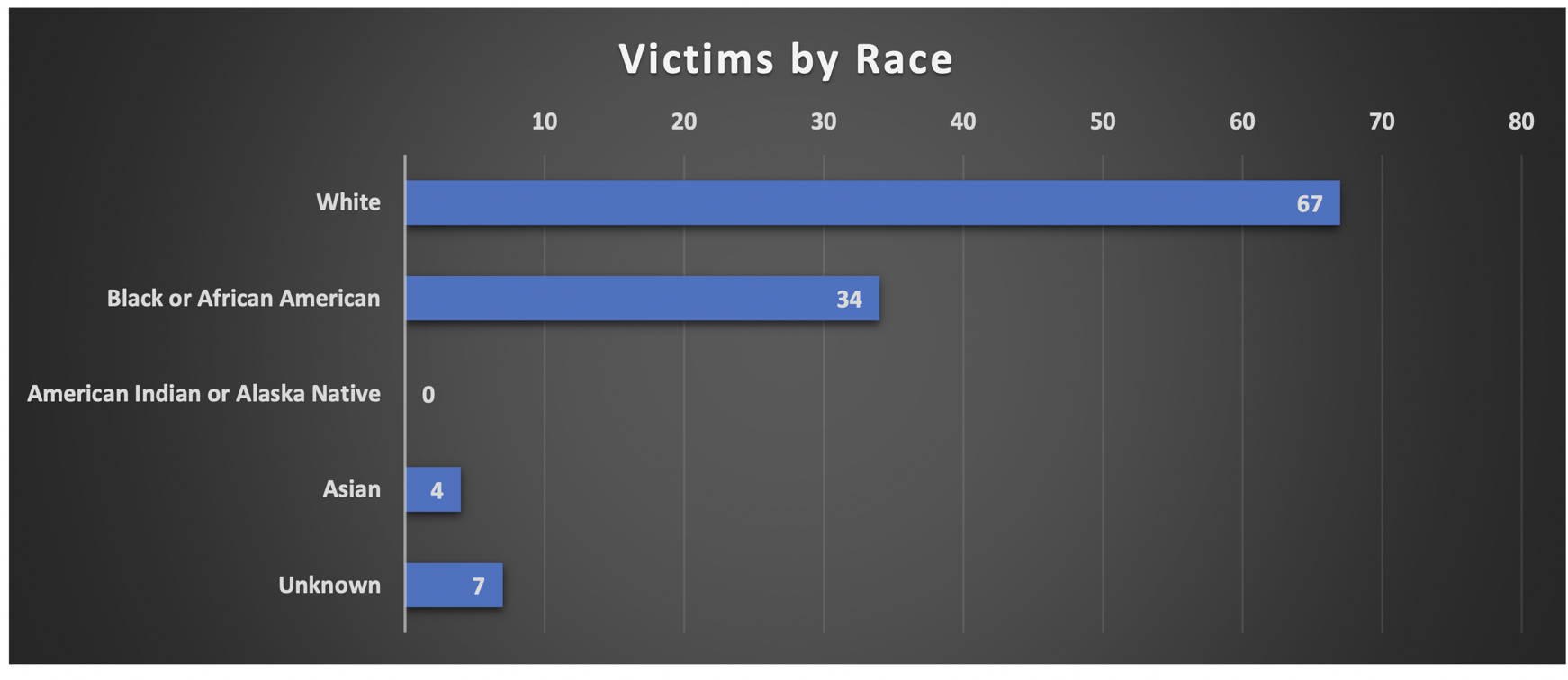
The next most-affected group was the LGBTQ community with 13 crimes reported. Most of Tennessee’s hate crime victims (29) were between 35 and 44 years of age.
“No one in this country should be forced to live their life in fear of being attacked because of what they look like, whom they love, or where they worship,” said the DOJ’s Associate Attorney General Vanita Gupta. “The department will continue to use all of the tools and resources at our disposal to stand up to bias-motivated violence in our communities.”
Tennessee hate crimes mostly happened in homes or residences (55) but they also happened in commercial spaces (27), schools (20), government buildings (8), public transportation (26), roads and alleys (17), parking lots or garages (9), and recreational spaces (6).
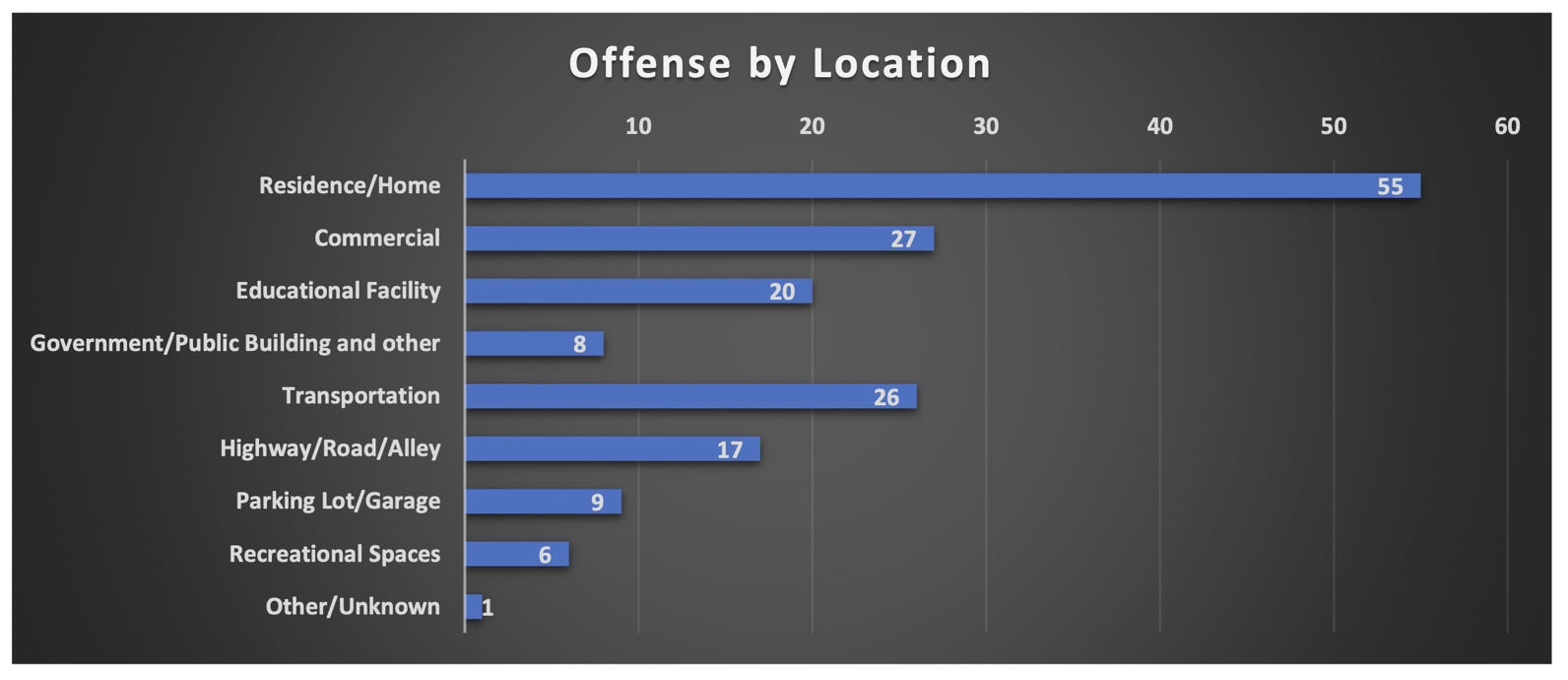
Most of these crimes were simple assaults (133). In them, offenders used their hands, fists, feet, arms, and teeth (30). They also used “dangerous weapons” (15), firearms (6), motor vehicles (3), asphyxiation by strangulation, gas, or drowning (1), fire or explosives (1), and in 17 cases the weapon was unknown.
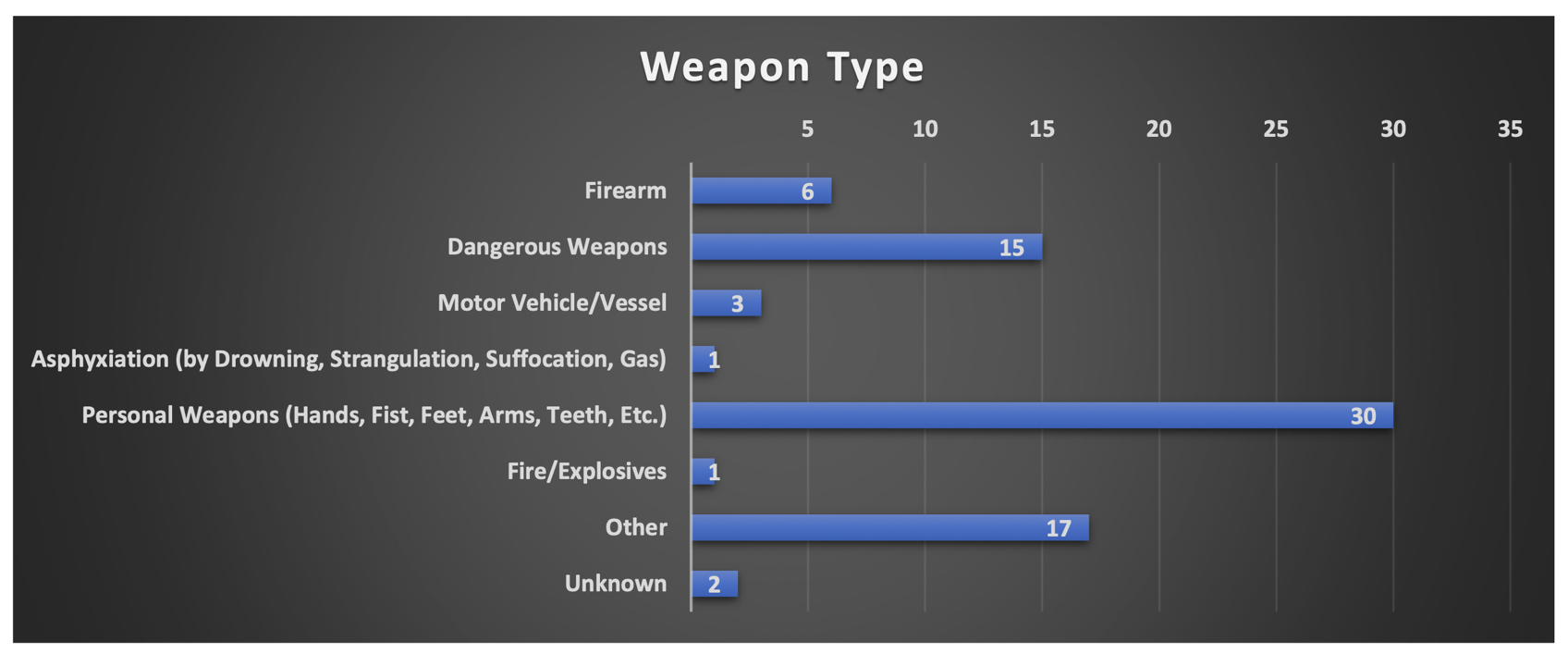
Thursday and Friday tied for the day that saw most hate crimes (25) committed in Tennessee. Saturdays (16) and Sundays (9) were the lowest. Most hate crimes were committed between the hours of noon-2:59 p.m. (24) and from 3 p.m. to 5:59 p.m. (24). The fewest hate crimes (3) occurred between the hours of 3 a.m.-5:59 a.m.
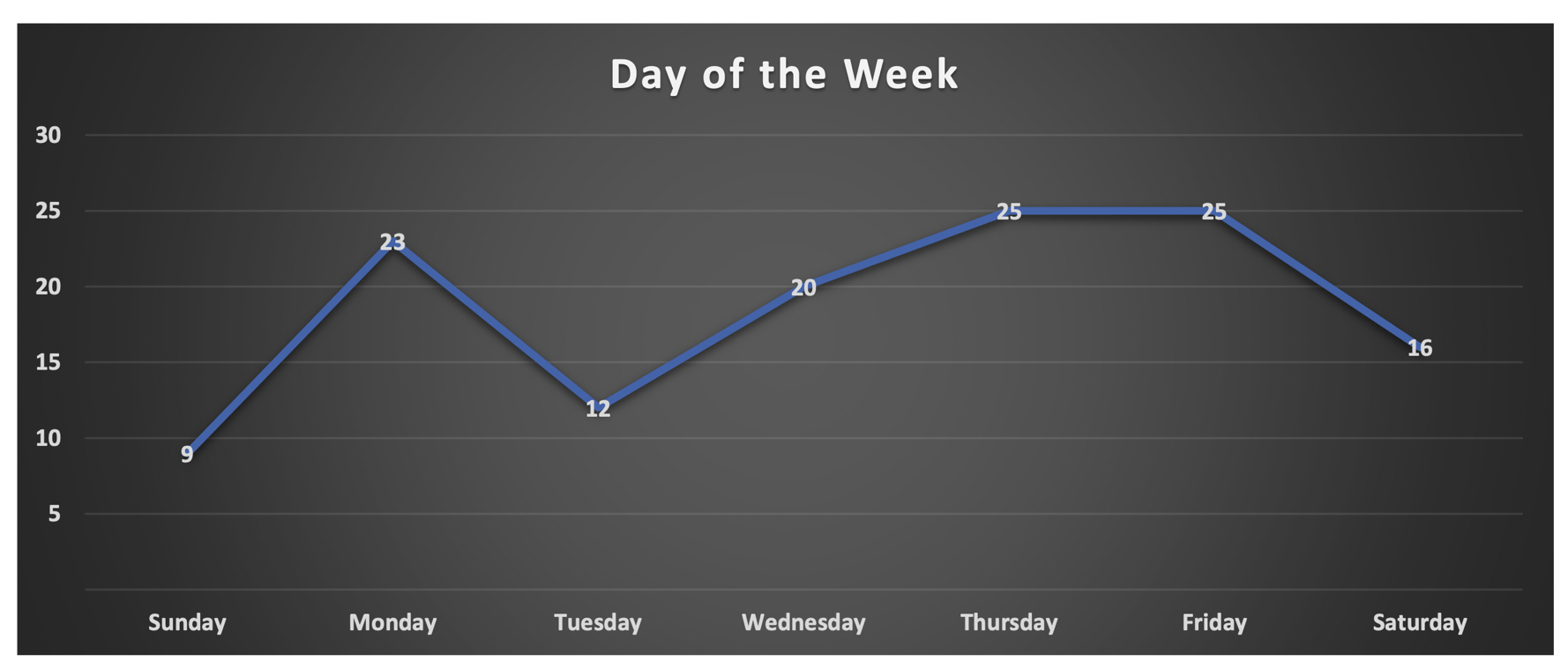
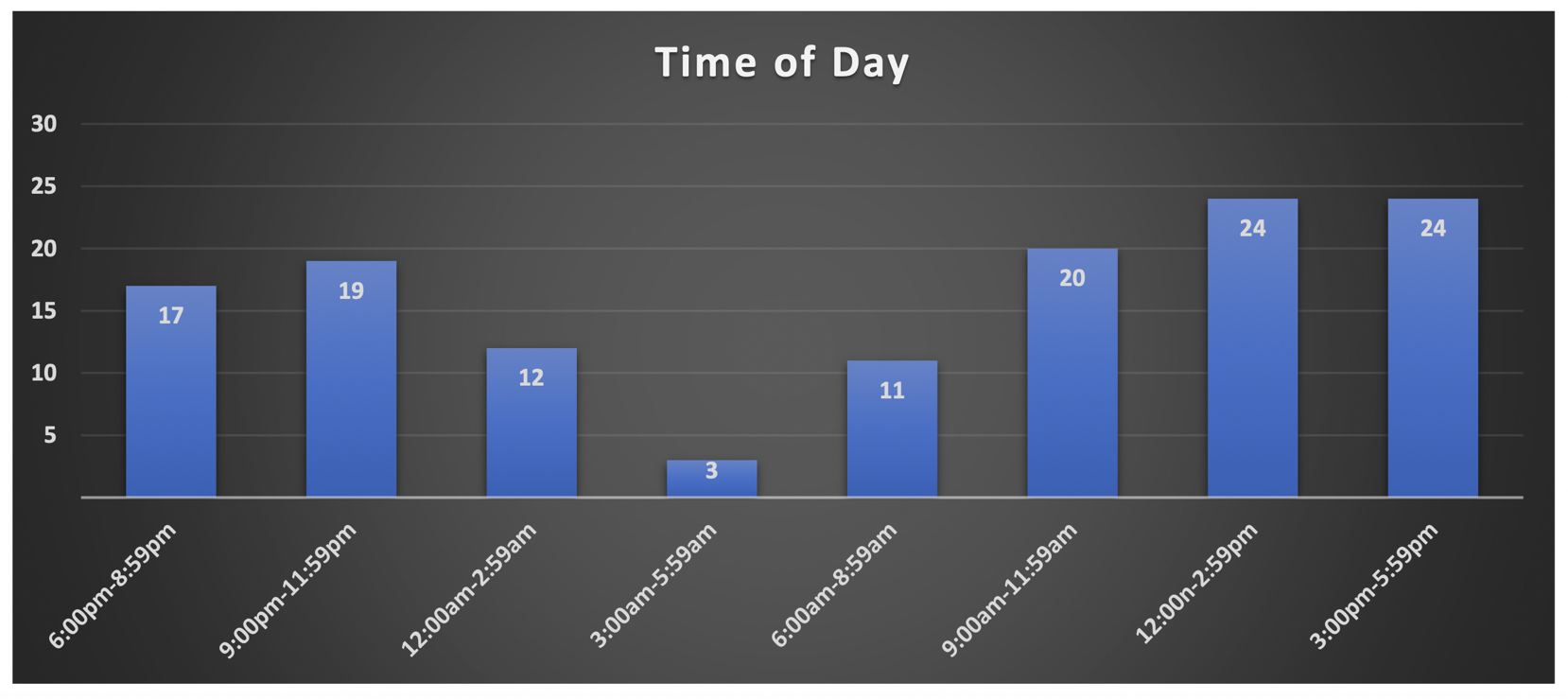
In Tennessee, most hate crime cases are not solved. In 2021, 40 hate crime cases were cleared with an arrest. However, 83 cases were not cleared. In other cases, prosecution was declined or the victim refuse to cooperate.
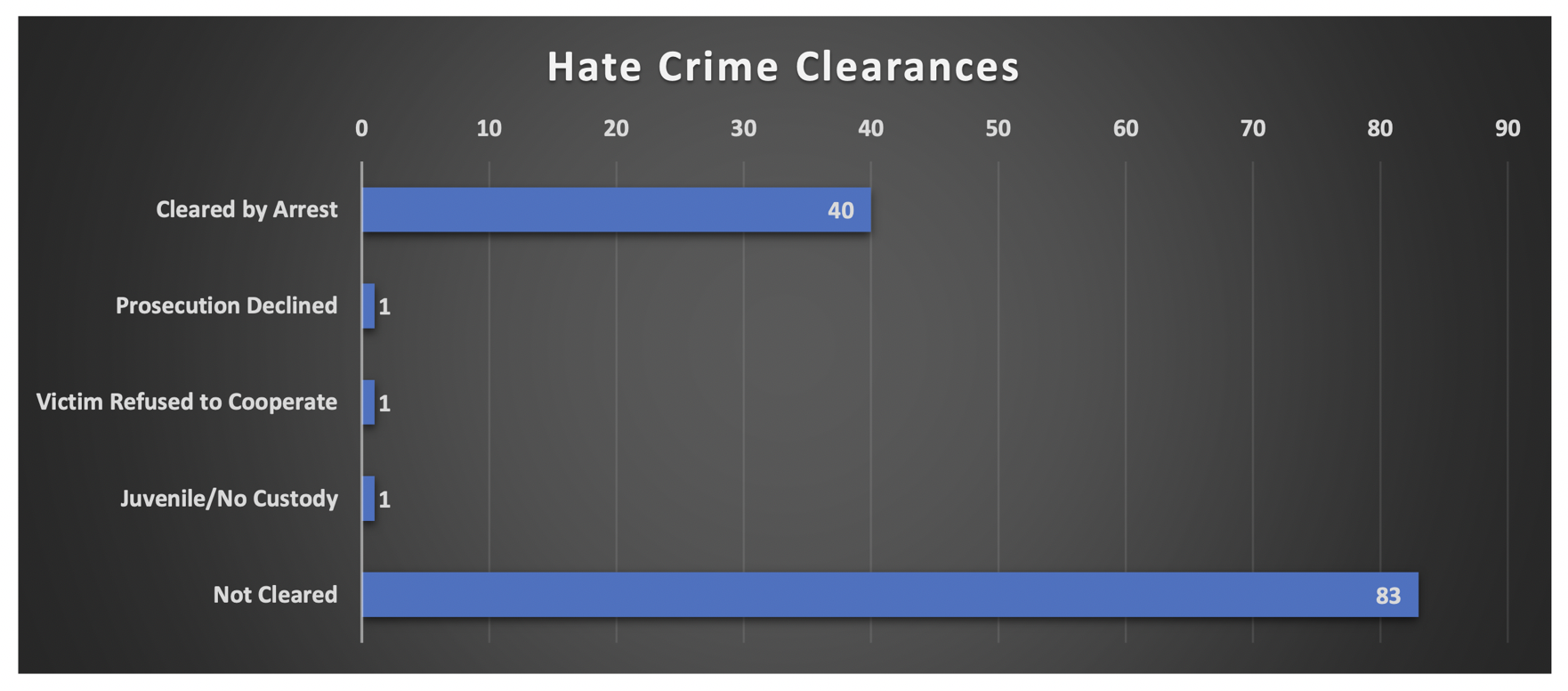
The Memphis Police Department recorded six hate-crime incidents in 2021, according to the FBI data. Three of these were anti-Black, two were anti-Hispanic or Latino, and one was anti-LGBTQ. In them, there were six counts of intimidation, one aggravated assault, one case of destruction of property, one robbery, and one simple assault.
Three incidents were in homes, two on roadways, and one on an industrial site. Six offenders were Black and three were white.
The Shelby County Sheriff’s Office (SCSO) recorded four hate crimes in 2021. Three of those were anti-Black, one was anti-white, all of them simple assaults. Two happened in schools, one in a restaurant, and the other in an unknown location. All four offenders were Black, according to the data, and one victim was a law enforcement officer.
Germantown Police Department recorded one hate crime, an anti-Asian simple assault by a thief person that happened in a restaurant. Millington Police Department recorded one anti-LGBTQ simple assault by a Black person recorded in a restaurant.
Bartlett Police Department recorded two hate crimes in 2021, one anti-Black, the other anti-white. One happened in a home, the other in a medical setting like a doctor’s office, drug store, or hospital.
Of the suburban cities that reported such data to the FBI, Collierville had the most in 2021. Two of them were anti-Black, one was anti-LGBTQ, and another was anti-Protestant. The victims were three individuals and one religious organization.
The University of Memphis reported zero hate crimes to the FBI. So did the state park rangers at Meeman-Shelby State Forest, law enforcement at Memphis International Airport, and the University of Tennessee Health Science Center. Neither Lakeland nor Arlington reported data to the FBI.
However, the Southern Poverty Law Center (SPLC) said national reporting of the data is “consistently inconsistent,” noting that the 2021 is “drastically incomplete” making comparison between previous years “almost meaningless.”
For example, the SPLC said, about 3,500 agencies did not report any data to the FBI in the 2020 report, including 10 cities with populations over 100,000. And another 60 police departments in cities with populations over 100,000 reported zero hate crimes.
